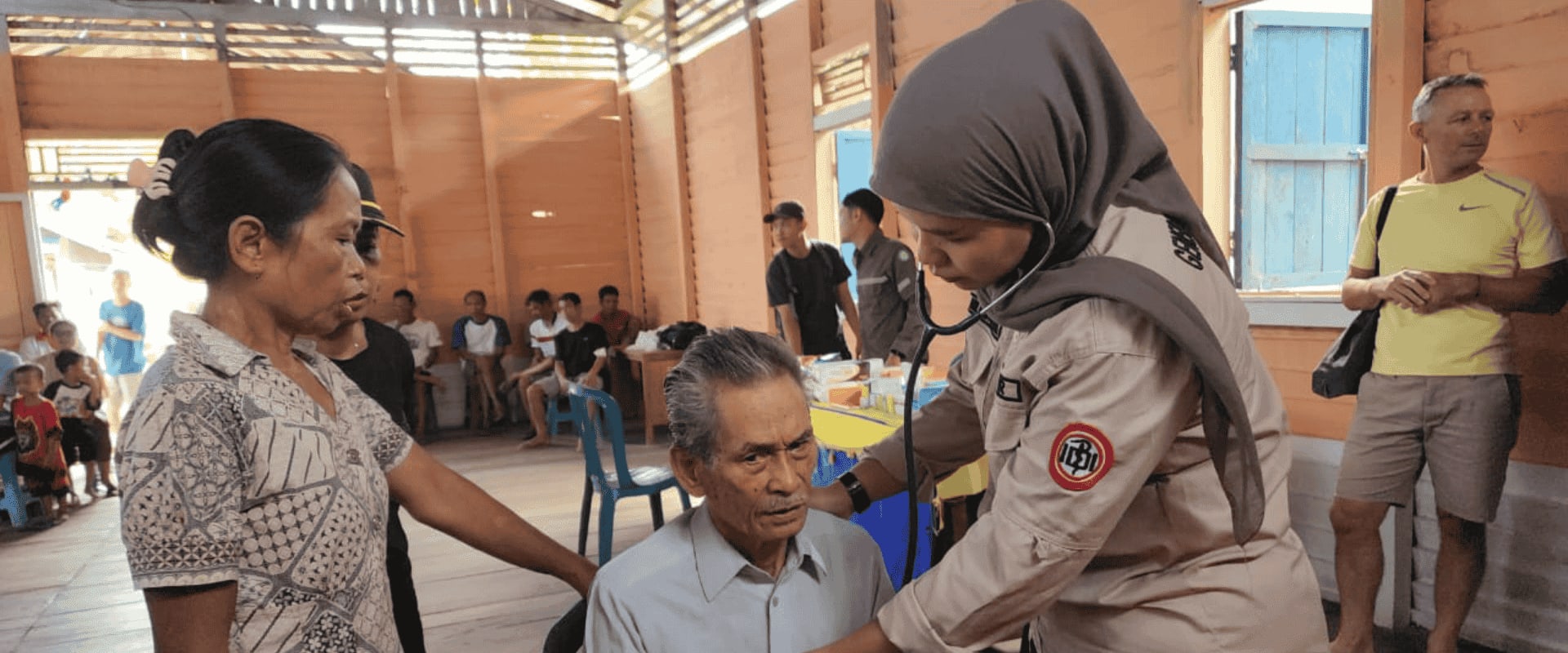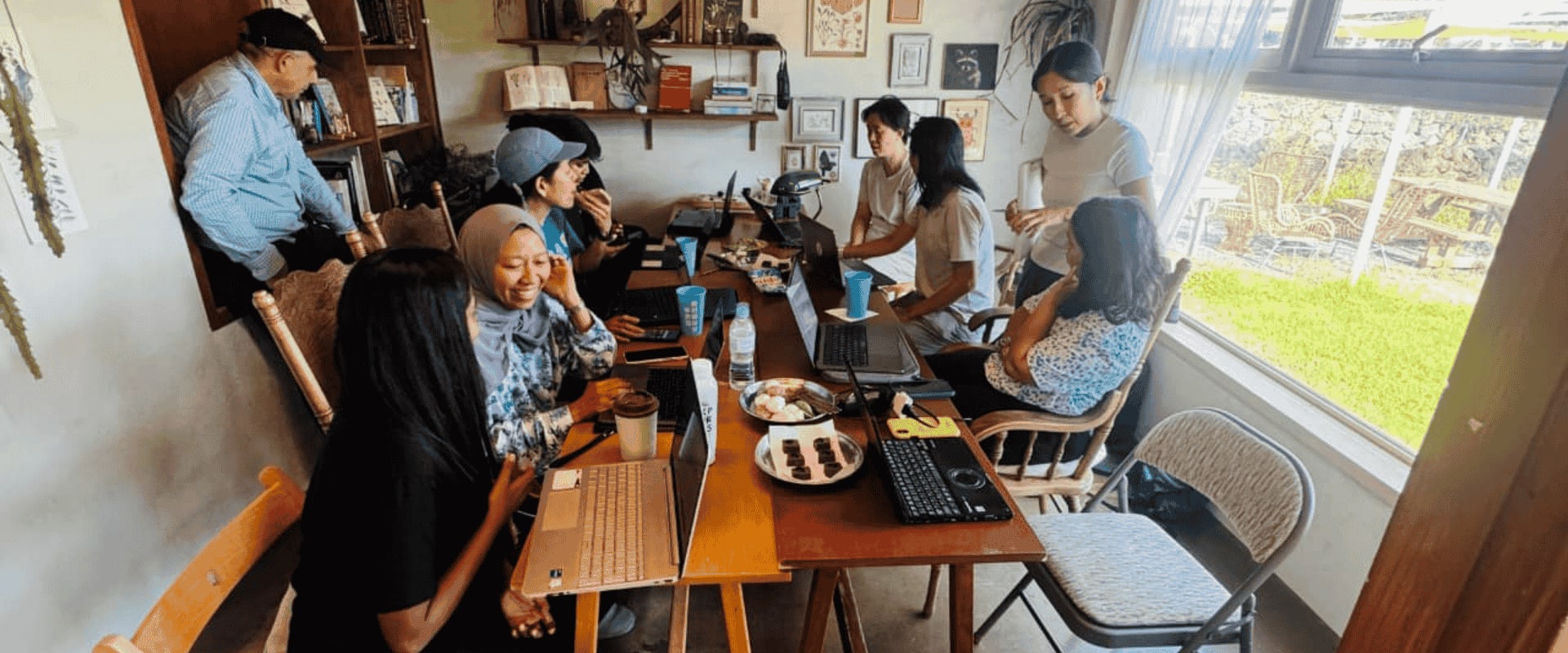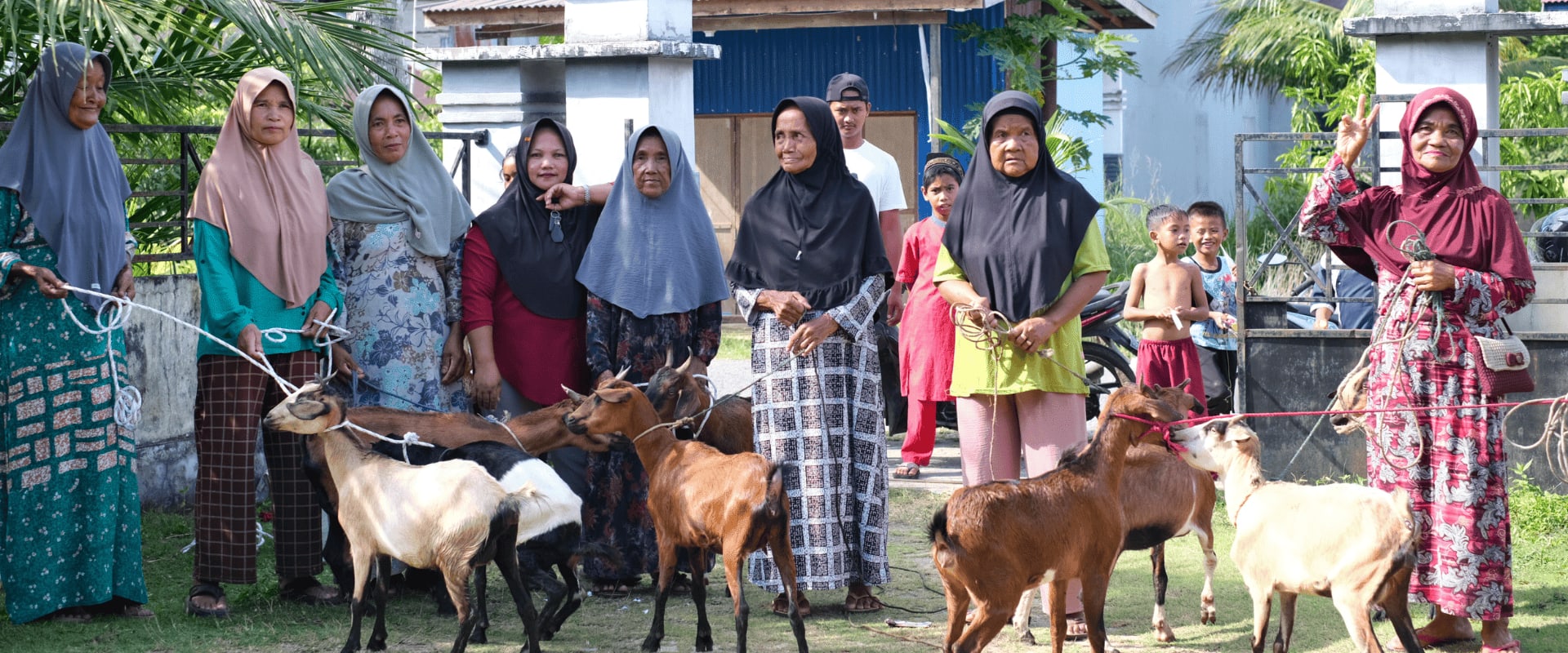Goat for Widow: ASRI’s Holistic Approach to Planetary Health Actions
"Why Goats? Why Widows?"
The question popped up in my mind the first time I learned about ASRI and applied for its vacancy. All I know is that this organization is known for its health and conservation issues they focus on. Later I found out that visitors who came to ASRI to learn about ASRI’s planetary health actions always ask the same question when they heard about the program Goat for Widow. Okay, now that I have asked the people here, met the beneficiaries, and followed Setiawati to some of her monitoring sessions, I am confident to break them down.
So let’s start with the first question.
“Why goats?”
In the forest-surrounding community in Sukadana, North Kayong, West Borneo where ASRI works, the majority of the people are moslem. In their religion, goats are often used in celebration. Such as the aqiqah, the celebration of the birth of a baby. The parents will sacrifice one or two goats, cook it and share it with their family and neighbors. The other one is the Eid Adha. Any family who can afford goats should buy one and also share it to the poor or their family. I saw that the goat business here is mostly religion-motivated as there were only a few restaurants selling dishes from goats.
People here also use their manure for farming, replacing the chemical fertilizer and ta-da! They’re practicing sustainable organic farming. Farming is one of the common livelihood practices in the area as an alternative to illegal logging. Sometimes they sell the manure for fertilizer to their neighbor or to ASRI’s garden.
Read also: Conservation or Community? Why Not Both!
Second question, “Why widows?”
Most illegal loggers are men. Why do we help these widows and what does it have to do with deforestation? Comparing it to other livelihood programs such as Chainsaw Buyback, it’s very clear that the beneficiaries are those men who do the deforestation due to lack of alternative livelihood, and ASRI even have reforestation programs to revive the once degraded forest.
But widows? They don’t even have their own chainsaw let alone use them. It seemed very disconnected to me at first. But later, I learned that this program which started in 2009, came out as the result of ‘radical listening’ in the Sukadana area. ASRI asked people,
“If the world community wants to thank you because you protect the forest, what form of thanks do you need?”
In short, aligned with ASRI’s mission which is to build a healthy, prosperous community, and sustainable forest, the people realize that widows are one of the most vulnerable communities. With the gender role perspective common in the area; that men are supposed to be the breadwinner, widows often had to take over that role to support their families, and ASRI supported and assisted them in raising the livestock; the goats.
An Example of Holistic Development for Forest-surrounding Communities
I agree with Abhinav, one of the fresh graduate visitors from the US who came to ASRI to learn different approaches to environmental actions. He saw that ASRI’s programs are holistic by design and do not depend on individual solutions but rather the holistic development.
The Goat for widow programs is a great example of that. Empowering the widows with goats to supplement their livelihoods, ASRI enables children who grew up in that family to look for and be equipped for alternative livelihoods that don't harm the forest. It also helps them to help their family in need of health care expenses without having to log anymore.
Read also: A Day With Our TB Heroes
From Grandma to Grandchildren, the Sustainable Impact
Among 262 widows Setiawati (ASRI Livelihood Team) has been assisting to raise goats, Kalsum (64), a widow living near the Mutiara Beach in Gunung Sembilan village is one of the most persistent partners who successfully raised dozens of goats. She received one female goat and lent one male goat in 2009, two years after her husband passed away. She was considered to meet the criteria as the beneficiary of the program by the ASRI livelihood team.
For her, to be able to own a goat has been her childhood dream. Because for a long time, she could only raise and take care of her neighbor's goats due to her family financial condition.
“It was hard for my family to even be able to feed ourselves. Let alone buy a goat and raise them,” she recalled.
She successfully raised dozens of goats and she's been able to complement her family's livelihood. Not only serving the food on the table, the purchase could help her send her granddaughter to school, and pay for health care.
"Last time I sold 11 goats and got 17 million, which was then used for my son-in-law's medication," she said.
She admits that sometimes she feels sad when she has to sell the goat that she has been taking care of since they were born.
Now that she’s 64 year-old, it's her children and grandchildren's turn to take care of those goats.
Once I met her in her house and checked out on the goats, I asked if any of them have names. Kalsum laughed and pointed to one of the goats, “my grandson calls him Jaelani.” Then we all laughed while trying to get away from Jaelani who stomped and seemed to know that we were talking about him.
Take your part in Planetary Health Actions
You don’t have to come to these remote parts of Borneo to take part in our planetary health actions. Support these widows so their family can be equipped for other job alternative and it’s our way to say thank you to them as they protect the forest for us all.




